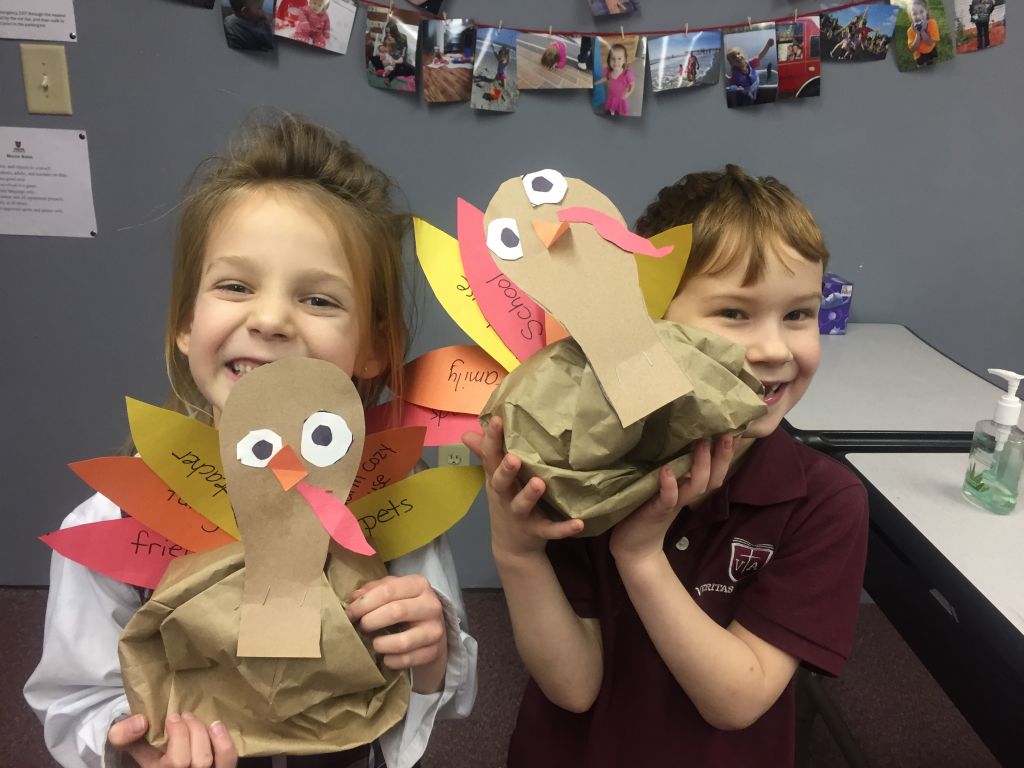Beauty in the Grammar Years
by Jodi Johnson, Early Childhood
Our overall mission at Veritas is to establish and equip the next generation to lead with clarity and virtue. Our classical methods and content teach students from kindergarten to 12th grade to think clearly, cultivate wisdom and understanding, and eventually become mature adults who value truth, acknowledge God’s beauty, and do good. Well known scholar, author and speaker Dr. Christopher Perrin states that classical educators have always emphasized the importance of mastering the masters. Believing that there are real standards of beauty, goodness and truth, they dared to pronounce some books good and some poor; they even went so far (over time) as to conclude some books the very best. In the old sense of the word, they were discriminating. If this is the case, how does one effectively help others to acknowledge God’s standard of beauty? And, can we teach others to be pursuers and creators of that which is highly beautiful?
As a kindergarten teacher, I learn to celebrate beauty in the everyday things. Beauty is coming to school and bringing a beautiful lunch box with beautiful snacks. I marvel at the students choices as they show me carrots and apple juice, sandwiches and cookies. We celebrate the shapes and colors of food while we compare them to geometrical patterns in their math books. As they meet new friends, we learn about the beauty of rules and how they help maintain order and structure that supports community. We discover the world around us and the tiny part our school building plays in educating us about God’s big world.
Beauty is seeing how God created the world, and our art work gives us a sense of appreciation for creating as we experiment with colors, textures and shapes. We make beautiful displays that tell the story of our Creator and how we fit into His beautiful world that He created in the beginning of time as we know it! We bring our baby pictures to school and create timelines that help us understand history.
Beauty is singing and listening, reciting and asking, discovering and watching, and even waiting. We love singing about what we are learning. From mammals, months, seasons, to math, and history! We have learned to recite poems and stories, chants and answers.
Beauty is learning that there are 26 letters, upper case and lower case, 5 vowels and the other consonants, the first 30 phonograms, holding our pencil correctly, learning to blend sounds and starting to read! We may not understand that syntax, structure and vocabulary will eventually lead to the eloquence and beauty of language and that if we use it effectively, we can persuade others towards goodness, but we love the sounds of vowels and love the things we write.
Beauty is playing, imagining, laughing together, and learning. Beauty is seeing math all around us in shapes, patterns, time and money. It’s a beautiful thing when you can count to 100.
As the teacher, I see beauty in their learning when their eyes sparkle, or when they make a new discovery. I celebrate with them when they become more independent and when they see beauty for themselves.
Kindergarten is a wonderful place to prepare children for their learning in the future.
Recent Posts
What Everyone Is Saying About Veritas
We want the best life for our child. A best life starts with a strong foundation. Veritas Academy is that foundation. We couldn’t be happier with our choice to choose Veritas.
Because of Veritas Academy’s commitment to students, my children are motivated to learn, they are challenged at their skill level instead of being held back due to their ages.
Transition from other educational models is seamlessly supported. Staff and teachers are proactive and caring to the smallest detail. Leadership goes above and beyond for ALL students.
Veritas Academy prepared my child for college. His biology professor said his papers are some of the best first-time college papers she has ever seen.

